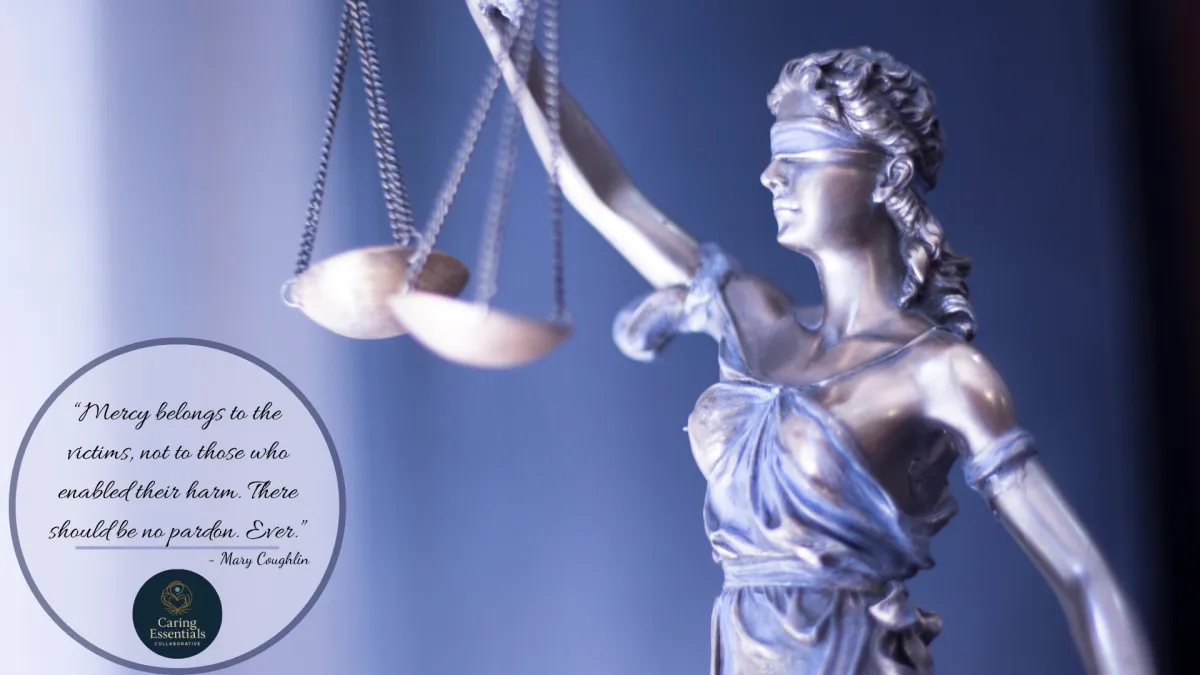
The Power of Secrecy: Why the Epstein Files Still Haunt Us
“Secrecy is not protection—it is power hoarded at the expense of justice.” - Mary Coughlin
The Power of Secrecy: Why the Epstein Files Still Haunt Us
It’s hard to shake the feeling that much of what we’re witnessing in this administration, and in American politics more broadly, has roots in power, blackmail, and the unspoken truths buried within the Epstein scandal. Even if the details remain sealed behind redacted court documents, the impact of secrecy is visible everywhere.
Secrecy as a System of Power
Jeffrey Epstein’s crimes against children were monstrous enough. But layered atop the horror was something equally corrosive: the way he weaponized power, money, and access. Epstein built a network where elites gathered, cameras rolled, and records were kept. Some were complicit, others complacent, but the structure itself was designed for leverage.
When we watch powerful figures today make choices that defy transparency or compassion, it’s impossible not to wonder what unseen forces still shape the stage. Who benefits from silence? Whose secrets remain protected?
The Ongoing Harm to Survivors
For survivors of Epstein’s abuse, every sealed record is another wound. Justice delayed feels like justice denied. When institutions protect the powerful instead of protecting the vulnerable, they retraumatize victims and send a dangerous message: that some lives matter less than others.
This isn’t only about one predator; it’s about the machinery that sustains impunity.
A Trauma-Informed Truth
Trauma-Informed Developmental Care (TIDC) offers lessons far beyond the NICU:
Safety must come before secrecy.
Trust and Transparency are non-negotiable for healing.
Voice and Choice require centering survivors, not silencing them.
Equity and Belonging demand that no one be above accountability.
Imagine if our justice and political systems lived by these principles; if transparency, not privilege, was the measure of leadership.
Pardon Watch: The Crossroads of Power and Justice
This week, former President Trump said he would “speak with the DOJ” about a possible pardon for Ghislaine Maxwell (Reuters, Oct 6 2025). The Supreme Court had just declined her final appeal (Politico, Oct 6 2025), and reports indicate she has already met with high-level DOJ officials (Washington Post, July 2025).
To even entertain clemency for a person convicted of aiding child sex trafficking is not a matter of politics—it is a matter of moral collapse. A pardon would reopen every wound survivors have fought to close. It would declare, yet again, that power protects its own while the vulnerable are left to carry the cost.
There can be no pardon. Not before disclosure. Not after. Not ever. Mercy belongs to the victims whose childhoods were stolen, not to those who enabled their harm. Anything less than full accountability desecrates justice itself. This is a moment of reckoning for every institution that claims to stand for law, ethics, and human dignity.
Our collective demand must be clear:
No pardon, period.
Full transparency of all Epstein–Maxwell materials that can be ethically released.
Center survivors in every decision and narrative.
Protect the integrity of justice from political manipulation.
Power already guards too many secrets.
Let this not become the moment it seals the last one.
Why This Matters Now
This moment is not about partisan loyalty or political gamesmanship. It is about whether justice still means something in a nation built on the promise of liberty and human dignity.
To even consider absolving an enabler of child trafficking reveals a rot that reaches far beyond one person or one case. It exposes how secrecy and power conspire to erode the very foundations of trust.
When survivors see clemency dangled before those who harmed them, it is not only retraumatizing, it is a public declaration that pain can be bargained away. When citizens witness truth withheld, they lose faith in institutions meant to protect them. And when trust collapses, democracy itself becomes fragile.
This is why the Epstein files and the possibility of a pardon matter. They are no longer just about what happened then. They are about what kind of nation we are now and who we choose to be in the face of corruption and moral decay.
The Call to Action
There must be no pardon. Period.
But a refusal alone is not enough. We must also commit to the deeper work, the trauma-informed, justice-rooted work, of building systems that protect truth over power and people over politics.
Here’s what that looks like:
Stand with survivors. Amplify their voices. Believe them. Protect their dignity.
Demand full transparency. No more sealed files, hidden names, or quiet settlements that keep truth in the dark.
Hold leaders accountable. No one, no matter how powerful, should be beyond the reach of justice.
Infuse trauma-informed principles into every system. Healing requires safety, voice, transparency, and equity — not secrecy, silence, or spin.
Stay awake. Stay involved. Journalists, educators, clinicians, and citizens, we are the firewall against forgetting.
This is not about vengeance. It’s about alignment — choosing integrity, transparency, and care as the foundations of power.
There should be no pardon. Ever.
There should only be truth.
Mary
